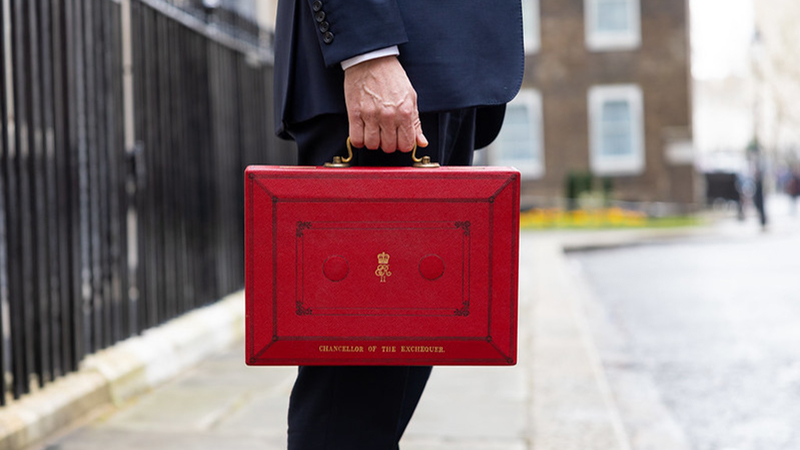With the Labour government’s first Autumn Budget fast approaching on 30 October, there are some critical points that investors need to see covered – and some they’d rather be left untouched.
Whatever is decided next week could have pivotal impacts on the future of the UK economy.
Here, investors highlight where they’re looking for clarity ahead of chancellor Rachel Reeves’ much-anticipated speech.
Capital gains tax
After being burdened with a £22bn black hole in public finances, revisiting capital gains tax (CGT) is “an obvious place for the government to make changes and generate more tax revenue,” according to Charlene Young, pensions and savings expert at AJ Bell.
There has been talk of equalising CGT rates with income tax, but this would be “the most radical option,” potentially pushing a “huge tax increase” on investors, Young added.
See also: Are UK finances at ‘breaking point’ ahead of the Autumn Budget?
Not only would this actively discourage UK savers from investing, but it could actually cost the government money. Raising the lower and higher CGT rates by 10 percentage points to 20% and 30% for non-property gains could lose the Exchequer £2.1bn by 2027, as investors would naturally mitigate paying the tax, according to Young.
“It may not be the cash cow that many think it is,” she said. “The government’s own figures show that a big increase in CGT rates could backfire and actually lead to lost revenue for the government.”
And some reforms go even further, suggesting the tax not end upon death. This would only hinder market engagement further, according to Alastair Black, head of savings policy at abrdn Adviser.
“Implementing such a change without some kind of indexation for inflation might have a detrimental effect on investing but also on passing on wealth to future generations,” he said.
“The higher rates may make gifting unpalatable for some and assets heavy with gains may end up being stockpiled until death rather than gifted and risk a double tax charge of both CGT and inheritance tax.”
Pensions
Lowering the tax-free lump sum cap on pensions is another rumored announcement that Black would like to see struck from the agenda.
Earlier this year, the Institute for Fiscal Studies (IFS) called for the cap to be lowered from £268,275 to £100,000, leading some savers to make frenzied withdrawals from their pensions.
Black said: “A tax grab on pensions is no way to nurture a culture of saving, least of all when Government is trying to boost pension investment.
“Speculation is causing panic, particularly among those without a financial adviser, with a rush to take advantage of the tax-free lump sum.”
See also: Computershare: UK dividend forecasts downgraded after drop in Q3 payouts
Like CGT, it would dissuade people in the UK from participating in healthy financial decisions, Black added.
“We would urge against this rumored change, which would serve only to undermine consumer confidence in pensions at a time when more people need to take responsibility for their own financial future and that of their loved ones,” he said. “The worst outcome would be people choosing to opt out of pensions and long-term savings altogether.”
Likewise, Killik and Co’s head of planning William Stevens said cutting savers’ tax-free cash allowance from 25% would be “incredibly disruptive”.
“Cutting this would throw many plans into disarray, potentially discouraging pension saving and increasing reliance on an already stretched state pension,” he added. “A more measured approach, focused on encouraging savings, would be far more constructive.”
Taking this a step further and bringing pensions into inheritance tax estate would also cause “significant complexity and confusion,” Stevens warned.
“This would require a fundamental rewrite of current legislation, adding to an already convoluted tax landscape,” he said. “Such a move could disincentivise pension saving and create more administrative headaches for families dealing with estates after a loved one’s passing.”
Support early-stage businesses
Rumors to bring AIM shares under the inheritance tax umbrella have also been met with backlash.
This beleaguered set of sub-market stocks have been battered enough, with the FTSE AIM 100 index falling 41.8% over the past three years, and piling new taxes into the mix would only make a bad situation worse, according to Abby Glennie, manager of the abrdn UK Smaller Companies fund.
“The challenges facing UK smaller companies are troubling, but it is not the companies who are the issue – the quality and growth dynamics remain strong, and very competitive versus listed smaller companies markets globally. The problem is uncertainty,” she explained.
Kier Stamer’s government have already made efforts to support this enterprising part of the UK market through initiatives such as the National Wealth Fund, but Henderson Opportunities Trust manager James Henderson said it is not far reaching enough.
“It can only scratch the surface of what is needed,” he added. “We need a vibrant AIM market to help these businesses with their large and growing capital requirements.”
See also: Small caps: Stamping out Stamp Duty
Stocks listed on the AIM market are somewhat supported already by the fact they are exempt from stamp duty tax, but the wider UK market could be supported by similar immunity.
Glennie said taxing investors on UK companies and not their US counterparts is “unfair and backward,” and encouraged Reeves to extend the exemption to fuel growth across the wider UK stock market.
“Stamp duty on UK share purchases constricts liquidity in the marketplace, leads to lower growth, and incentivises flows to other markets and products,” she added.
“Given the difficulties faced by UK smaller companies specifically, a stamp duty cut on companies outside the FTSE 100 would be a good place to start – followed by an extension of the policy to all listed UK companies.”










